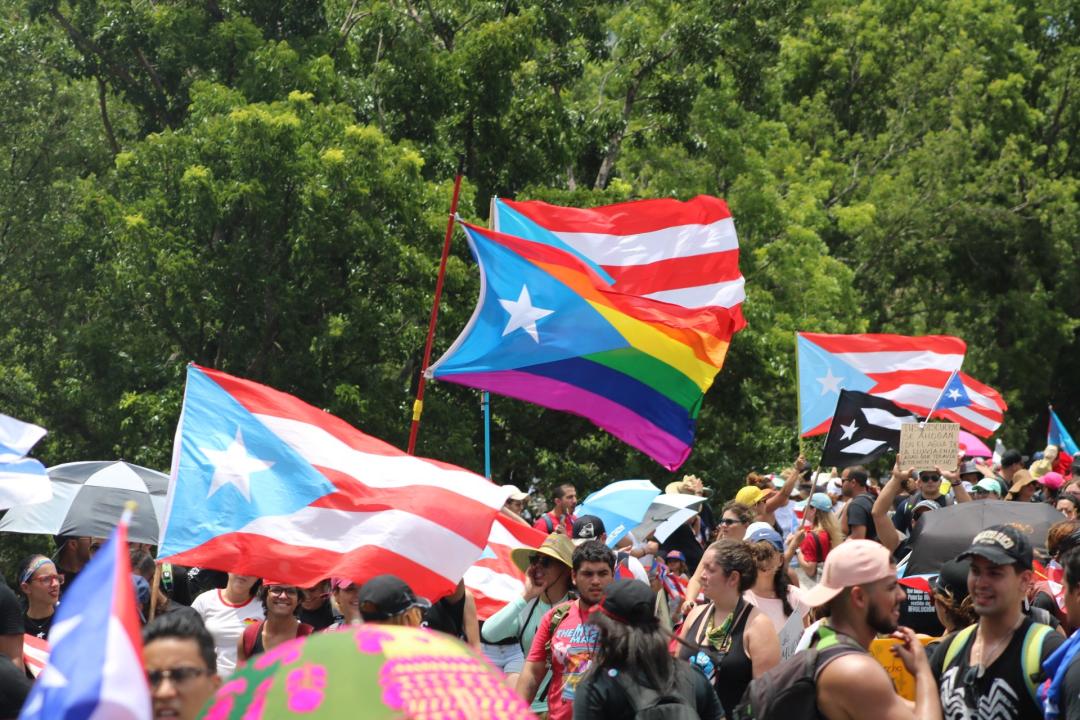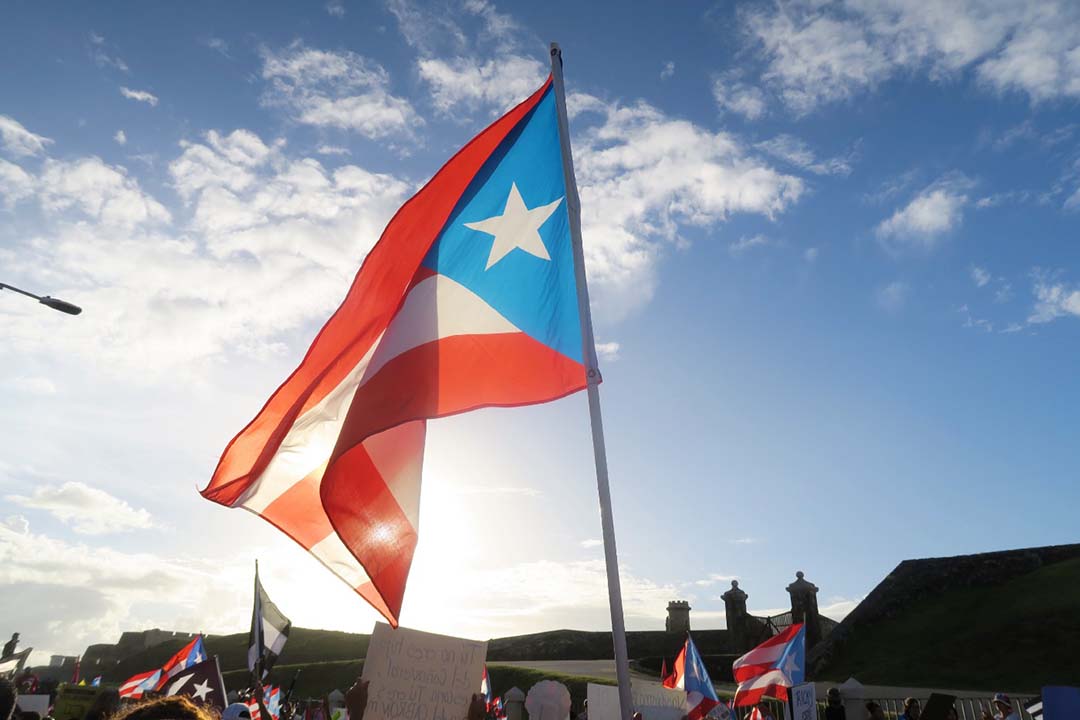Written by: Andres Perez, Cisneros Class of 2024
I have never lived anywhere for more than four years. Although each move has rewarded me with a unique perspective and a broad understanding of cultures, I have struggled with my identity and the idea of home for most of my life. In the summer of 2019, when I went to visit my family in Puerto Rico as I do every year, the steady battle against corruption, which has loomed over the island for centuries, took an unexpected turn of events and I was hit with a realization that changed my views about home and my sense of belonging.
It all started when two members of former Governor Ricardo Rosselló’s administration were indicted on federal corruption charges while Rosselló was on vacation with his family in Paris. Just a day later, 889 pages of text messages in a group chat between the governor and his closest aides were leaked and published. The messages were extremely offensive toward the people of Puerto Rico, who have been suffering economically and socially for years, especially in the aftermath of Hurricane Maria. They were dehumanizing and included sexist remarks about a well-known female politician. The people of Puerto Rico were furious. In a panic, Rosselló flew back to the island.
As soon as he landed in Puerto Rico that Monday, he was confronted by several groups, including the Colectiva Feminista en Construcción, an anti-colonial feminist collective that positions itself as explicitly intersectional. By Wednesday night, around 500,000 people had joined the protests. Demonstrations continued for over a week on the island, and the number of people grew by the day as demands for the governor to resign continued.
Most of the island felt, and still feels, frustrated since Hurricane Maria swept the island in 2017. While my family in Puerto Rico was battling the effects of the hurricane, I was living in Houston and had just experienced Hurricane Harvey firsthand. With my heart aching for both of these areas, it was mind-blowing to see how fast the city of Houston got back on its feet in comparison to the island. Sadly, to this day, Puerto Rico has yet to fully recover from the effects of the hurricane. Since this devastating natural disaster, businesses have collapsed, homes are still gone, and many still don’t have roofs over their heads. Rosello’s response towards the 4,645 lives lost during Hurricane Maria was one of the main reasons why so many Puerto Ricans felt a need to protest against the governor during the summer of 2019. The vulgar and sexist language from the island’s supposed leaders felt like a punch in the gut. Puerto Ricans came together after the hurricane, and as persistent as they are, they came together again in response to the leaked messages from Rosello and his allies.

I listened to the crowds of people as they moved with passion through the streets of Puerto Rico. I knew that I was exactly where I needed to be. Prouder than ever to call myself a Boricua, I admire how we used our voices and we spoke up for our beliefs. Both of my parents were there with me and they told me that they had protested on the island before, but had never seen anything as monumental as this. What was so unique about the protests was that they did not consist of one political party, but rather everyone together fighting for one cause. Protesters from all age groups, genders, races, sexual orientations, and political ideologies came together as one to partake in peaceful demonstrations such as yoga classes, acrobatics, and dancing the macarena. One of the most powerful tools during these protests was the use of social media. Most of my Instagram feed was filled with posts saying “Ricky Renunica,” tweets of teenagers and young adults expressing their opinions, and posts of people with the Puerto Rican flag painted on their bodies. What was so impressive was that a generation that is constantly on social media realized that it can be used for change. We made ourselves heard, we demanded change, and we achieved something that has never been done in the history of the island.
Because I’ve moved so much in my life, I often feel like an outsider, but in Puerto Rico, I always feel a sense of belonging and peace. A part of me wishes I had grown up in Puerto Rico like my parents did, however, the protests made me see that home isn’t where my current house is; it is where my heart belongs. Everything I do, I do to make my family back home proud. Wherever my career takes me, I hope to be able to make a positive impact on the island I love so dearly.
The public pressure and protests led to Rosselló’s resignation announcement on July 23, 2019. Chanting and singing filled the streets afterward in celebration of the island’s accomplishment. Through the use of music, art, and protesting, Puerto Ricans got their message across not simply because there were big crowds, but because every protester used their voice — they spoke, they chanted, they sang.
Andres Perez is a first-year Cisneros Scholar in the GW Columbian College of Arts and Sciences. He is pursuing a Bachelor’s in Psychology and is originally from Dorado, Puerto Rico. Andres' views are his own and not necessarily reflective of the Cisneros Institute.
Photo Credit: Andres Perez


